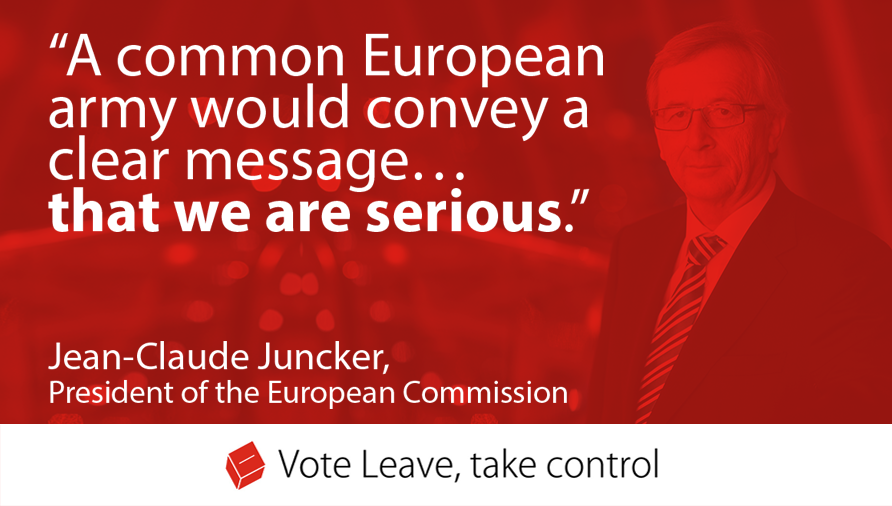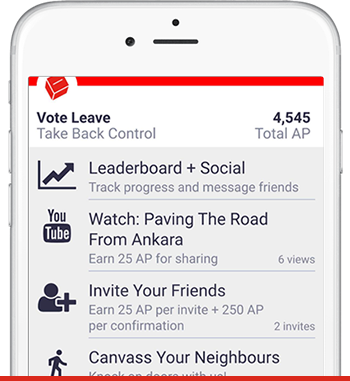Fact
The European Courts have asserted control over how our intelligence services and armed forces operate
Defence cooperation in Europe is obviously a good thing. The problem with the EU’s approach is that it is not about cooperation - it is about centralising control of defence in Brussels, just as the euro centralised control of the economy in Brussels. It is dangerous to keep giving away control of defence and security to the Brussels bureaucracy. It is safer to take back control and then negotiate a new deal based on international cooperation. We can keep cooperating with our allies without handing over permanent control to people in Brussels we can never vote out.
THE EUROPEAN COURTS ARE TAKING CONTROL OF THE UK’S INTELLIGENCE SERVICES AND ARMED FORCES
In July 2011, the European Court of Human Rights said that it - not Parliament - would decide how the UK armed forces operate overseas. The scope of unelected European judges’ jurisdiction has been extended to our service men and women on active service. In June 2013, the UK Supreme Court admitted that we have no choice but to accept this. The UK is also subject to the EU’s Charter of Fundamental Rights. This allows the EU’s Court to assert control of UK armed forces and intelligence services.
The European Court has already used the Charter to exert control over how our intelligence services pursue terrorists. It has also recently blocked us from deporting Abu Hamza’s convicted daughter-in-law. If we vote ‘remain’, it will take more and more power over the armed forces and intelligence services and there will be nothing we can do about it. This may damage the intelligence sharing agreements that Britain has had with Canada, Australia, New Zealand, and America since 1945, which would be very dangerous. There is no appeal from the European Court and no limit to its control - it decides itself what it controls and we have no choice but to accept it so long as we are inside the EU.
The European Court was never designed to regulate battlefield operations. It is now competing with the Geneva Conventions as to which set of rules govern the laws of war, creating chaos. British soldiers have been forced into impossible ‘Catch-22s’. In one example, soldiers were told that if they failed to release detained enemy combatants after five days the detention became ‘unlawful’ under European law, but if they released the combatants to the Afghan authorities, that would be ‘unlawful’ under European law too because they were exposing them to a real risk of ‘inhuman or degrading treatment’.
THE EU WASTES BILLIONS AND DELAYS PROJECTS BY YEARS
Being in the EU means that our military gets dragged into having to comply with costly and burdensome EU Single Market regulations and directives. The European Court has forced the Ministry of Defence to comply with EU procurement laws.This is extremely expensive and delays military projects by years. The EU has also adopted several directives specifically governing defence procurement.
These complex EU rules create constant threats of legal action against the Ministry of Defence either by equipment companies or the EU itself which delays projects and makes them more expensive. They also lead to the MoD making decisions to comply with EU rules that are not in the national interest purely to avoid possible legal challenges. For example, money is sometimes diverted to foreign companies to avoid legal action leading to British firms going bust or leaving the market. This is a long-term danger - during the Falklands War, Belgium infamously banned the export of ammunition to the UK.
These EU rules have delayed the creation of:
1) The new Aircraft Carriers. Questions over procurement have seen costs of these ships skyrocket and have introduced numerous delays. The former shadow defence secretary, Jim Murphy, described the fiasco as ‘one of the biggest public procurement messes for many decades. David Cameron has potentially wasted more than a year and squandered millions.’
2) The Typhoon aircraft. The introduction of these planes was postponed for two decades as a result of procurement confusion. In a recent Parliamentary report, the Commons warned that ‘Major defence procurement contracts are often lengthy and therefore carry an inherent risk that elements become obsolete before projects are completed and operational.’
THE EU PLANS AN 'EU ARMY'
For over 50 years, the EU has tried again and again to create a European army. The EU has already introduced a ‘Common Security and Defence Policy’ but Brussels wants much more control. Last year, the President of the European Commission, Jean-Claude Juncker, said he would like to see the introduction of an EU army. The European Commission has said that EU defence integration is not ‘just a political option but a strategic and economic necessity’.
Article 42(2) of the Treaty on European Union provides that ‘the common security and defence policy shall include the progressive framing of a common Union defence policy. This will lead to a common defence, when the European Council... so decides.’ The Commission describes this as ‘a roadmap to common defence.’ This is being used to accelerate plans for a European Army.
This aim is supported by some European governments. The Spanish Government’s Strategy for External Action states that ‘we must take advantage of all the possibilities offered by the Lisbon Treaty’. The German Government has also said it wants an EU army.
Such actions risk undermining NATO as they will duplicate key functions of the alliance. The US Congress has warned that ‘U.S. officials remain concerned ... that France and a few other EU members may continue to press for a more autonomous EU defence identity that could rival NATO structures and ultimately destroy the indivisibility of the transatlantic security guarantee’. For example, NATO-EU rivalry badly disrupted the mission launched to support the African Union in Sudan.
If we vote to remain in the EU, the Commission will take more and more control. The EU says it already has the power to pass laws affecting defence under the current Treaties and has already started introducing a European border force with armed ships and drones. These could operate just a few miles from the British Isles. The new agency will have a force of 1,500 guards and a ‘right to intervene’ in European Union nations.
These developments are separate from the Commission’s plans to develop its sovereign control over what it sees as common EU maritime interests, through the generation of common coastguard assets monitoring activity within the 200 mile limit of EU coasts. The migration crisis is accelerating moves to generate a more centralised capability. A common coastguard is a step towards a common EU navy.
Prominent veterans have highlighted how these proposals will make us less safe. Major General Thompson, who was British land commander on the Falklands as leader of 3 Commando Brigade, has warned that ‘I find it quite extraordinary that they are trying to set up a separate defence organisation. It makes us less safe. It muddies the water.’
THE EU IS TRYING TO ABOLISH OUR SEAT ON THE UN SECURITY COUNCIL
In October 2015, the European Parliament endorsed a report calling for the abolition of the UK’s seat on the UN Security Council. Brussels wants ‘the EU to become a permanent member of that body, with one permanent seat and one single vote.’
THE EU’S RECORD ON DEFENCE ISSUES IS BAD
The EU has shown itself inept at dealing with defence issues. The EU spectacularly failed to cope with the disintegration of Yugoslavia in the early 1990s. The former Secretary of State for Defence, John Nott, has pointed out that ‘the only time the EU actually took charge of security was during the Bosnian War. Its mishandling of that crisis led to more than one million people being displaced and up to half a million being killed or wounded’.
The EU has also handled the situation in the Ukraine extremely badly - leaked telephone conversations have shown that US officials have had to resort to asking that the EU is excluded from the whole process because it makes the situation worse.
As Major General Julian Thompson, who commanded 3 Commando Brigade during the Falklands War, has said 'Why would we want to be part of a union that includes members that are as incompetent in matters of security as Belgium; a union that is incapable of policing its borders and is contemplating allowing anyone with a Turkish passport unfettered access to all member countries?'
NATO IS A VITAL ALLIANCE
Leading historians have said that the claim that the EU is responsible for peace in Europe post-1945 is ‘historically illiterate’.
The NATO alliance managed Europe’s defence against the Soviet Union in the Cold War and organised European action against militant Islam after 9/11. NATO is the single key component in Britain’s - and Europe’s - security, but it is a component that is being undermined by the EU.
A vote to remain in the EU is a vote to keep giving the EU more and more power over our military and defence. The EU has used this power badly in the past and will continue to undermine our security if we stay in. The safer option is to Vote Leave and take back control of our defence.
Key Facts
Useful facts, videos and graphics to share with your friends and family
Don’t believe BSE’s scaremongering
The EU-funded Britain Stronger in Europe (BSE) campaign is trying to scare you by saying that leaving the EU ‘would threaten our safety.’ The UK will be much stronger if it doesn’t have to worry about the EU trying to undermine our relationship with NATO.
Vote Leave App
Together we can make a difference and win the referendum with grassroot support from campaigners like you.
Please get involved and take action by downloading the official Vote Leave mobile app and join tens of thousands of volunteers helping us take back control!

